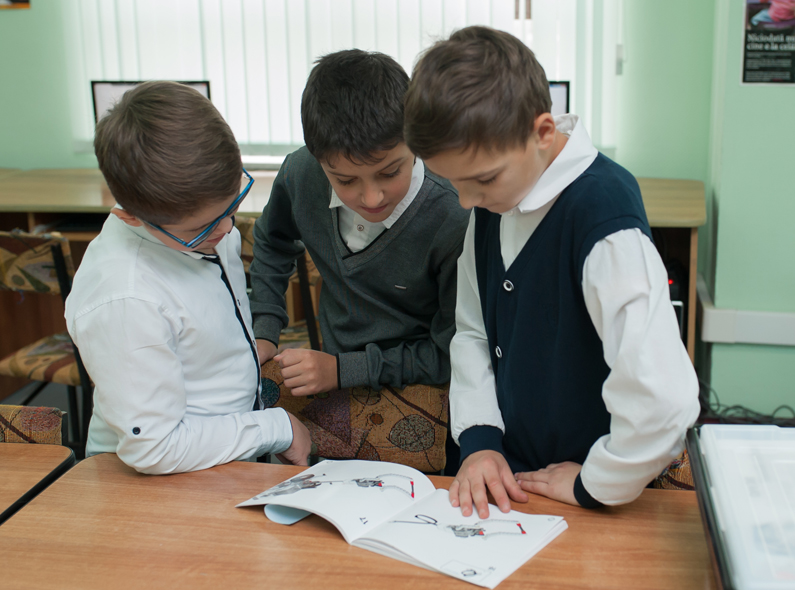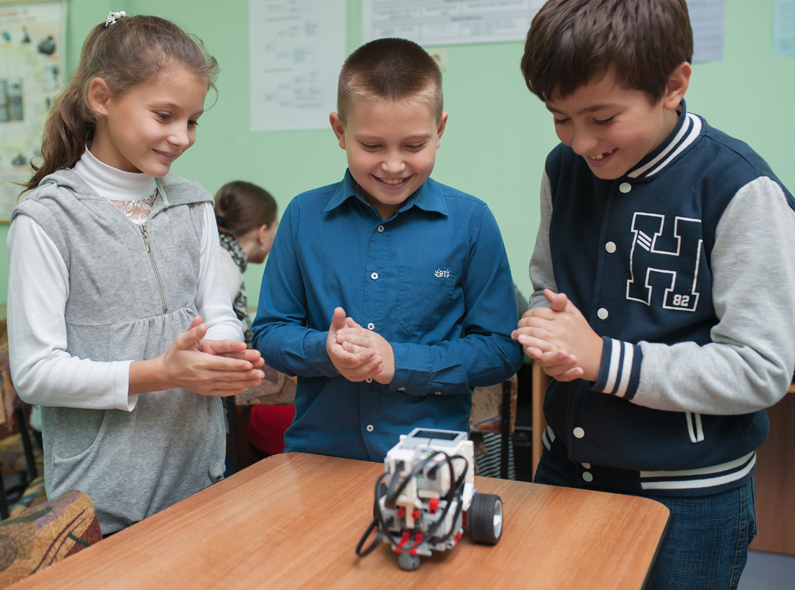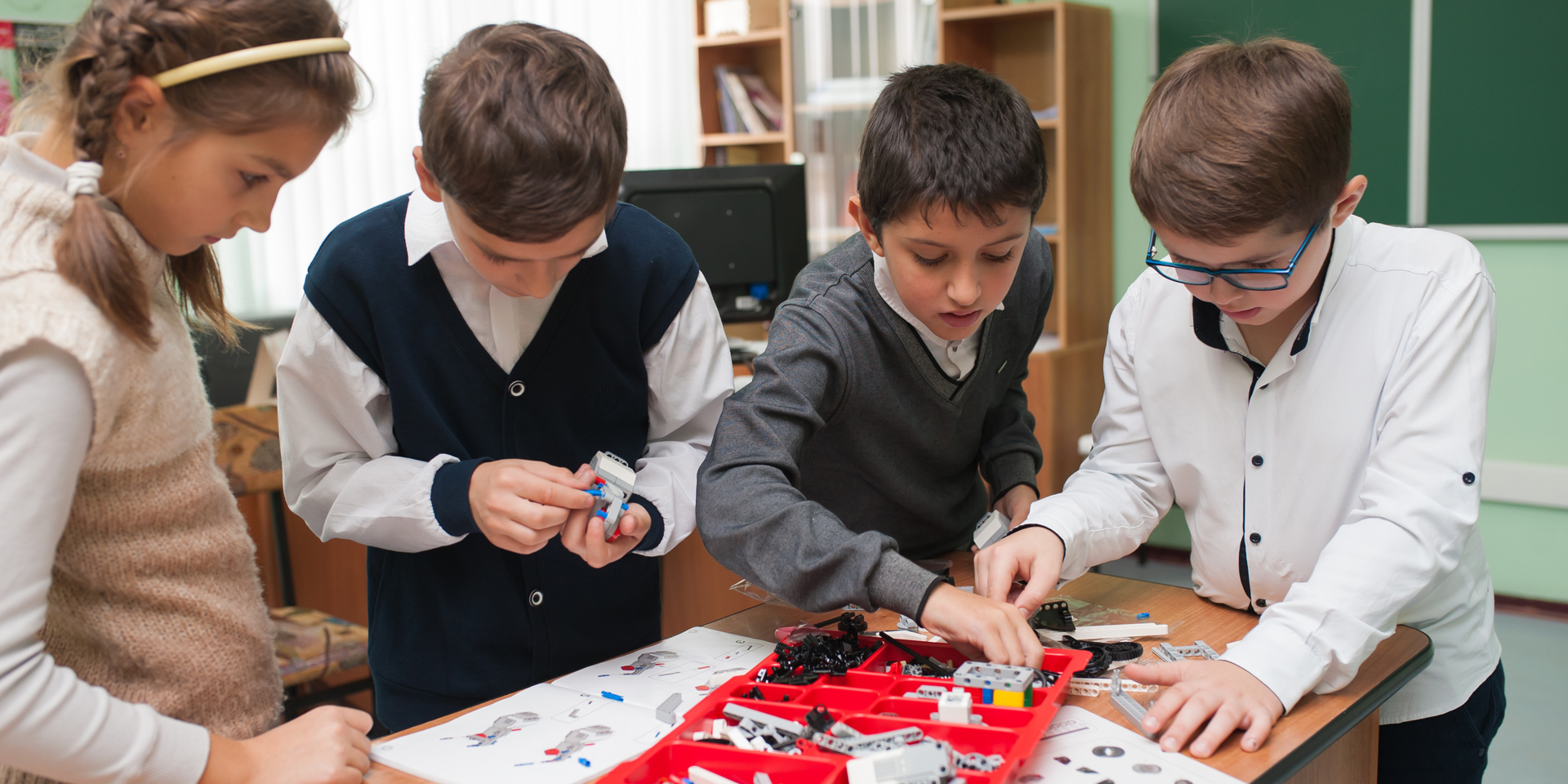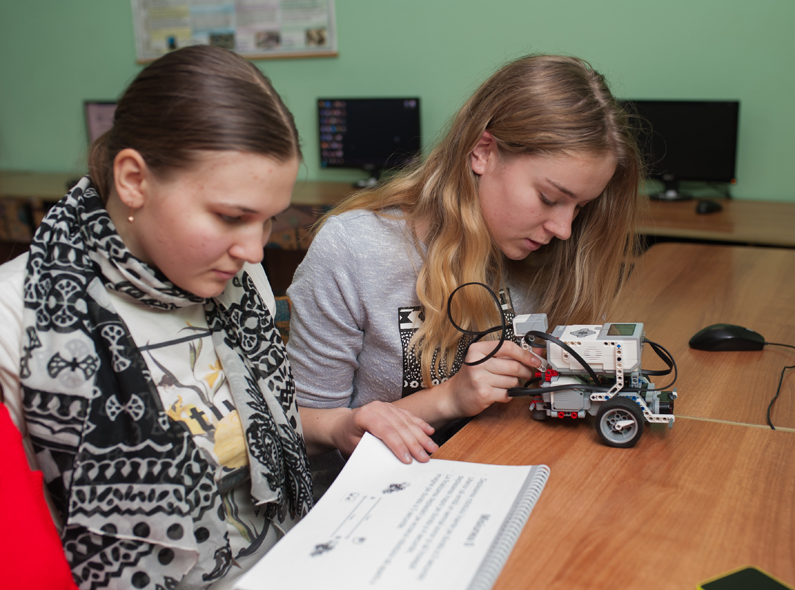The RoboClub initiative, which started in 2014 as a small pilot in six schools, celebrates educational robotics as a path to embracing STEM. Through RoboClub, more than 2,000 children are attending robotics clubs and being prepared for STEM careers. Guided by their imaginations, tools, and teachers, they assemble robotics sets as part of their curriculum. The robotics sets enable students to build, program, and test real-life robotics technology. From understanding forces and motion to interpreting rotation sensor data, the students experience a fully functioning robotic system. For Andrei Copaci, a 13-year old boy from Chisinau, Moldova, this exposure to robotics inspired a passion for IT.

“I dream to become an IT engineer and I know technology can change the world,” says Andrei. “Now, I just play with robots, but I am being challenged to create robots that will be of use for the entire society.”
Catching children at a young age is key to creating a lifelong interest in these topics: Students like Andrei who have early exposure to robotics are twice as likely to major in science or engineering. STEM literacy is especially critical for Moldova’s IT sector, which currently employs more than 20,000 people and will need thousands more in the coming years to meet rising demand.
But among STEM professionals, women are sorely underrepresented. The RoboClub initiative breaks this trend by offering girls practical experience that shapes their professional development. Through educational robotics, girls not only build creativity and problem-solving skills, but also gain the confidence to pursue a STEM career. The initiative gives girls early exposure to STEM and also the opportunity to turn play into practice through robotics competitions and summer camps.

MCP supported the Association for IT Development to organize the second edition of the GirlsGoIT Summer Camp in July 2016. With guidance from professional mentors and trainers, 40 girls from 10 Moldovan localities received training in web applications development and basic IT skills. The GirlsGoIT participants became local ambassadors of the program by spreading knowledge in their communities and inspiring others to pursue a career in IT.








































